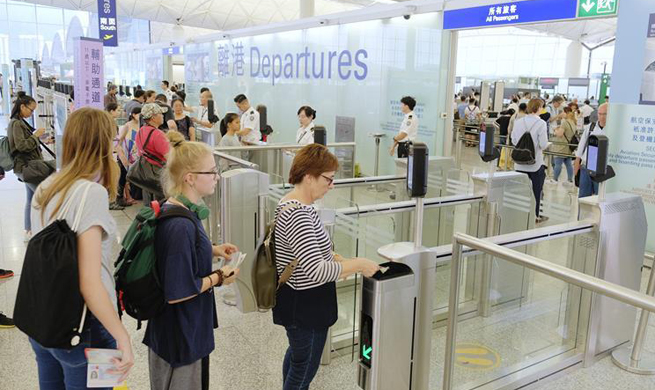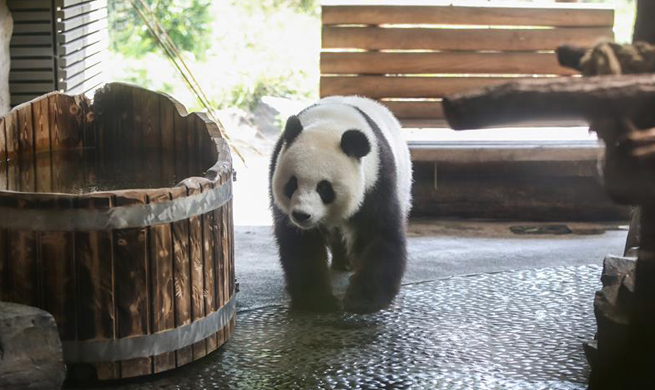TOKYO, Aug. 14 (Xinhua) -- Economists and government officials in Japan agree that the U.S.-initiated trade frictions with China and the U.S. accusation of China as a "currency manipulator" are detrimental to its credibility and the world economy.
At a press conference this month, Japanese Prime Minister Shinzo Abe has said that overseas factors such as the U.S.-China trade spat have brought downside risks to Japan's economy, and if such risks continue to emerge, his country will not hesitate to employ various flexible measures to deal with them properly.
An official from the Japanese Finance Ministry echoed the prime minister's words by saying that if the U.S.-China confrontation intensifies, it will have a negative impact on the world economy.
Speaking on condition of anonymity in response to the U.S. designation of China as a "currency manipulator," the official said it was more serious than what people had expected, Kyodo News reported.
Kiyoyuki Seguchi, research director at the Canon Institute for Global Studies, said it is a consensus within the international financial community that the Chinese government cannot devalue its currency, the renminbi, by intervention.
The decision to label China as a "currency manipulator" was likely made by a minority group in the White House. If the United States continues to adopt relevant sanctions based on this allegation, its legitimacy will be widely questioned by the international community, he said.
Labeling other countries as "currency manipulators" is a negotiating tool for the United States, said Hidetoshi Tashiro, chief economist at Sigma Capital Ltd.
What happened to China today could happen to Japan and other regional economies in the future, he said.
Mihoko Hosokawa, chief researcher at Japan's Mizuho Bank Ltd. (China), attributed the drop in the exchange rate of the U.S. dollar to the Chinese yuan to U.S. President Donald Trump's announcement of a "fourth round" of tariff increases on Chinese imports from September.
Hosokawa said that while there has been an outflow of capital amid strong concerns about trade frictions, there is also an inflow of capital as the Chinese government continues efforts to open up areas such as financial markets. Chances are slim that a further sharp depreciation of the renminbi will occur before the U.S. administration's new additional tariff is in place, she said.
Katsuyuki Hasegawa, chief economist at the research division of Mizuho Research Institute, said he finds the designation of China as a "currency manipulator," which casts doubt on the continuity and predictability of U.S. policies, hard to understand.













